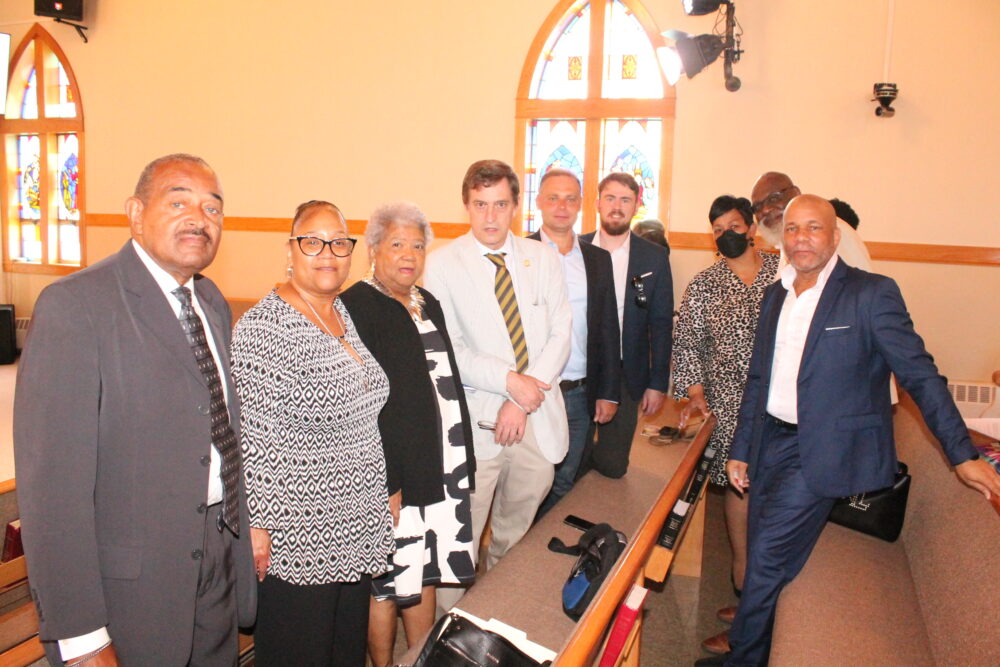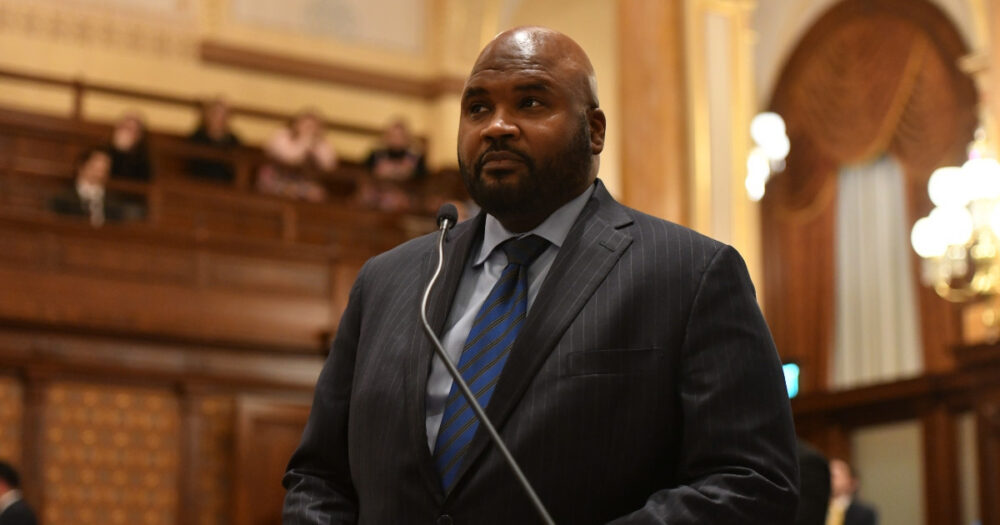People with long COVID-19 who visited a Northwestern Medicine clinic were still experiencing symptoms such as headaches, dizziness, fatigue and brain fog for a median of 15 months after first falling ill, despite never needing hospitalization, according to a new Northwestern study.
Advertisement
The study looked at 52 patients who were seen at Northwestern’s Neuro COVID-19 clinic between May 2020 and November 2020, who initially had mild COVID-19 symptoms. Study senior author Dr. Igor Koralnik said the study is the first to look, over such a long time period, at neurological symptoms in people who didn’t need to be hospitalized for COVID-19.
The study was published Tuesday in peer-reviewed journal Annals of Clinical and Translational Neurology.
Advertisement
“It’s important because … long COVID is not going to be going away,” said Koralnik, who is chief of Neuro-infectious Diseases and Global Neurology at Northwestern Medicine and oversees the Neuro COVID-19 Clinic.
Researchers believe long COVID may affect up to 30% of people who get COVID-19, which means an estimated 24 million people in the U.S. may be experiencing lingering symptoms, according to the American Academy of Physical Medicine and Rehabilitation, though some studies have found that being vaccinated may reduce a person’s risk of developing long COVID if they catch COVID-19.
“This is something people need to know about because it impacts a very large population in the U.S.,” Koralnik said.
In the study, there was no significant change in the frequency of patients experiencing symptoms including brain fog, numbness/tingling, headache, dizziness, blurred vision, tinnitus and fatigue, between their first appointments and when they completed questionnaires six to nine months later.
Loss of taste and smell decreased over time, but heart rate and blood pressure variation and gastrointestinal symptoms increased at follow-up.
The average age of the participants was 43, and nearly two-thirds were women. More than two-thirds were vaccinated, but they were vaccinated after they began experiencing COVID-19 symptoms because the vaccines were not yet available when they first got sick. The vaccines did not seem to worsen or improve their cognitive function or fatigue, according to the study.
For the study, researchers reached out to the first 100 non-hospitalized patients who visited the Northwestern clinic, and the 52 studied were those who completed follow-up questionnaires. Those patients had varying experiences with long COVID, with some mainly experiencing loss of taste and/or smell, while others, like Emily Caffee, struggled with a debilitating litany of symptoms.
Advertisement
Caffee said she likely got COVID-19 at the very beginning of the pandemic while traveling for a rowing competition. She had body aches, fatigue, shortness of breath, chest pain and foggy thinking. Though she felt ill, she wasn’t so sick that she had to be hospitalized.
After her initial bout with COVID-19, she returned to her then-job as a physical therapist for Northwestern, but her symptoms soon worsened, to the point that she took a three-month-long medical leave from work, starting in May 2020.
She was plagued by crushing fatigue, brain fog, heart palpitations, vision issues, pain in her legs and neck and unrelenting anxiety — what she called her “buffet of misery.”
“I couldn’t stand for five minutes without getting so dizzy and nauseous I needed to lay down for an hour,” said Caffee, 36, of Wheaton. “If I knew I had to take a shower or follow a recipe or walk downstairs to get the mail, that was it, that was all I could do all day.”
In August 2020, she returned to work, slowly ramping up her hours. By September 2020, when she saw Koralnik, she was feeling about 50% better, she said. Koralnik told her to continue doing what she was doing, slowly resuming her activities, she said.
The feedback was validating, considering that she had previously been told her problems were related to anxiety. She never tested positive for COVID-19, as testing wasn’t yet widespread when she got sick.
Advertisement
“Just hearing from them, from a physician … that what I was going through was real and not just anxiety was key for me,” she said.
Caffee, who now works at PT Solutions in Bloomingdale, said she now feels about 95% back to normal. “This took over two years of my life that I feel was just suffering in so many ways, but I consider myself lucky I’ve come through it without any major complications.”
Like Caffee, about half of the patients in the study never tested positive for COVID-19. But Koralnik said it was important to include them because, like Caffee, many likely had COVID-19, based on their symptoms, before testing was readily available.
“Those patients have experienced a lot of rejection and stigma, and those people are often women in their 40s,” Koralnik said. “There are millions of those people who couldn’t get tested in 2020 yet they continued to have long COVID symptoms.”
Koralnik acknowledges that the study has its limitations. The study is based on just 52 patients, but Koralnik said researchers felt it was important to share what they’ve learned so far, rather than wait longer to study a larger group of people. Also, because the study consists of people who visited the Northwestern clinic and chose to participate in the study, it’s not representative of all people with long COVID who didn’t require hospitalization. About 90% of the study participants were white.
Still, Koralnik said Northwestern has had an open-door policy for its clinic, meaning patients did not need to be referred by other doctors or show proof of insurance. The clinic also has seen people from across the country, by performing both in-person appointments and telehealth visits.
Advertisement
The findings in the new study follow up on a Northwestern study published in March 2021 that found that 85% of people with long COVID-19, who did not require hospitalization, experienced four or more neurological symptoms that impacted their quality of life, and, in some cases, their cognitive abilities.
“This study is the first of its kind that was started in a difficult circumstance, in the lockdown in Chicago, and provides very unique and important data on this population of patients,” Koralnik said. “We hope it’s going to help clinicians take care of those patients and further studies are going to be done.”







